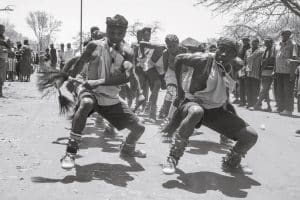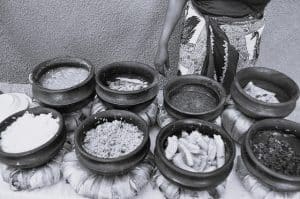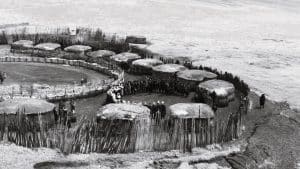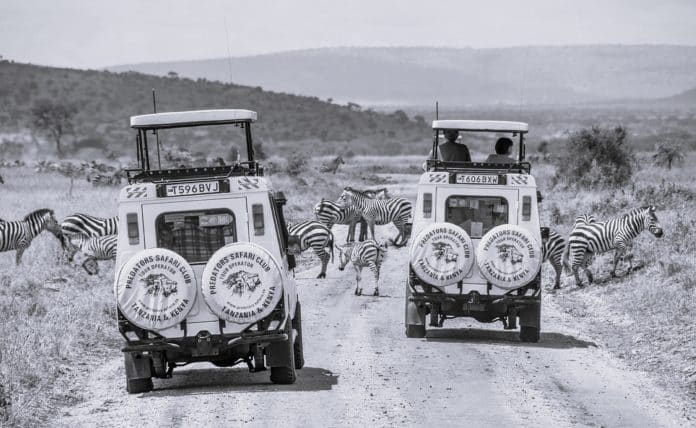Planning Your Dream African Adventure: Unveiling the Best Time to Explore Tanzania’s Rich Cultural Heritage
Embark on a journey to discover Tanzania’s rich cultural heritage and unlock the secrets of this vibrant African nation. As you plan your dream African adventure, timing is everything. The best time to travel to Tanzania Africa, and experience the cultural gems depends on various factors, including weather, festivals, and local customs. This article will be your guide to uncovering the optimal time to immerse yourself in the traditions, history, and festivities that make Tanzania truly unique.
Understanding the Importance of Timing in Planning Your African Adventure
Timing plays a crucial role in planning any travel experience, and exploring Tanzania’s cultural heritage is no exception. By choosing the best time to visit Tanzania Africa, you can maximize your chances of witnessing traditional events, participating in cultural activities, and immersing yourself in the local way of life.
One of the key factors to consider when planning your trip is the weather and climate in Tanzania. The country experiences two distinct seasons: the dry season and the wet season. The dry season, which runs from June to October, is generally considered the best time to visit for cultural experiences. During this time, the weather is pleasant, with clear skies and lower chances of rainfall. This makes it easier to navigate the country and participate in outdoor activities, such as cultural festivals and tours.
On the other hand, the wet season, which lasts from November to May, brings heavy rainfall to Tanzania. While the landscape becomes lush and green, the rain can make certain areas inaccessible and limit the availability of cultural events. However, it is worth noting that the wet season also has its own charm, as it offers a unique opportunity to witness the natural beauty of Tanzania in full bloom.
The Best Time to Visit Tanzania Africa for Cultural Experiences
To truly immerse yourself in Tanzania’s rich cultural heritage, it is essential to plan your visit around the various festivals and events that take place throughout the year. These events showcase the traditions, customs, and history of the different ethnic groups that call Tanzania home.
One of Tanzania’s most iconic cultural events is the Maasai Mara Cultural Festival, held annually in September. This is one of the best times to go to Tanzania Africa. This festival celebrates the unique Maasai culture through traditional music, dance, and storytelling. Visitors have the chance to witness the Maasai people in their vibrant traditional attire, learn about their ancient rituals, and even participate in activities such as spear-throwing and traditional beadwork.
Another significant festival is the Bagamoyo Arts Festival, held in the coastal town of Bagamoyo in August. This festival brings together artists, musicians, and performers from across Tanzania to showcase their talents and celebrate the country’s diverse cultural heritage. Visitors can enjoy live music concerts, traditional dance performances, art exhibitions, and workshops on traditional crafts.
For those interested in the Swahili culture, the Sauti za Busara Music Festival in Zanzibar is a must-visit. Held in February, this festival features a lineup of local and international musicians, showcasing the best of Swahili music. From traditional taarab to modern bongo flava, the festival offers a unique opportunity to experience the vibrant music scene of Zanzibar and immerse yourself in the Swahili culture.
Festivals and Events Showcasing Tanzania’s Cultural Heritage

In addition to the specific cultural festivals mentioned earlier, Tanzania has a rich calendar of events that highlight the country’s cultural heritage throughout the year. These events provide opportunities to witness traditional music, dance, and rituals, as well as engage with local communities and learn about their way of life. It is important that you know the best time to travel to Tanzania Africa, for maximum exploration and enjoyment.
One such event is the Kilimanjaro Marathon, held annually in February. This marathon attracts participants from around the world who come to conquer the iconic Mount Kilimanjaro while also experiencing the local culture. The marathon route takes runners through scenic landscapes and traditional villages, allowing them to interact with the local communities and witness their daily activities.
Another event that showcases Tanzania’s cultural diversity is the Ngorongoro Conservation Area Marathon. Held in April, this marathon takes place in the Ngorongoro Crater, a UNESCO World Heritage Site known for its stunning wildlife and breathtaking landscapes. Participants not only get to challenge themselves in a unique setting but also have the opportunity to learn about the Maasai culture and witness their traditional way of life.
For those interested in history and archaeology, the Olduvai Gorge Lecture Series is an event not to be missed. This lecture series, held in July, brings together renowned archaeologists and scientists to discuss the latest discoveries and research findings related to the human origins and evolution in Tanzania. Visitors can attend lectures, participate in workshops, and explore the nearby Olduvai Gorge, which is considered the “Cradle of Mankind.”
Exploring Traditional Music and Dance in Tanzania

If you love music, dance, and a lot of festivities, the best time to visit Tanzania Africa is during the peak summer season. Music and dance are integral parts of Tanzania’s cultural heritage, and experiencing these art forms is a must for any visitor seeking a deeper understanding of the country’s diverse traditions. From rhythmic drumming to energetic dance routines, Tanzania offers a wide range of musical and dance styles that reflect the cultural richness of its communities.
One of the most renowned traditional music styles in Tanzania is taarab. Originating from the Swahili culture, taarab combines elements of Arabic, Indian, and African music to create a unique and enchanting sound. Visitors can attend taarab performances in Zanzibar, where local musicians showcase their talent and transport audiences to a world of melodious tunes and poetic lyrics.
In addition to taarab, traditional dance forms such as ngoma and mdundiko are widely celebrated in Tanzania. Ngoma is a collective term for various dance styles performed by different ethnic groups across the country. Each dance style has its own distinctive movements and rhythms, often accompanied by live drumming and singing. Mdundiko, on the other hand, is a dance style specific to the Sukuma people of Northwestern Tanzania. Known for its energetic and acrobatic movements, mdundiko is a captivating spectacle that leaves audiences in awe.
Immersing in Local Cuisine and Culinary Traditions

Do you love trying out new delicacies and food from other cultures? If so, the best time to go to Tanzania Africa is during the harvest season. This is when there are plenty of fresh foods to be eaten. No cultural exploration is complete without indulging in the local cuisine. Tanzanian food is a reflection of the country’s diverse ethnic groups and is characterized by a blend of flavors, spices, and cooking techniques. From street food stalls to fine dining restaurants, Tanzania offers a wide range of culinary experiences that will delight your taste buds and introduce you to new flavors.
One of the most famous dishes in Tanzania is ugali, a staple made from maize flour that is often served with various stews and sauces. Visitors can try this traditional dish in local restaurants or even participate in cooking classes to learn how to prepare it themselves. Other popular dishes include nyama choma (grilled meat), pilau (spiced rice), and chapati (flatbread).
To truly immerse yourself in the culinary traditions of Tanzania, consider visiting local markets and street food stalls. The bustling markets offer a wide variety of fresh produce, spices, and snacks. You can sample fruits such as mangoes and bananas, try street food favorites like mishkaki (grilled skewered meat), and even taste the famous Zanzibar spice mix known as pilipili.
Discovering Traditional Arts and Crafts in Tanzania
Tanzania is a treasure trove of traditional arts and crafts, with each region offering its own unique styles and techniques. From intricate wood carvings to vibrant textiles, exploring the local arts scene is a fascinating way to learn about the cultural heritage of Tanzania.
In the town of Mto wa Mbu, located near the entrance to the Ngorongoro Conservation Area, visitors can discover a thriving community of artisans. The town is known for its wood carvings, which range from intricate sculptures depicting wildlife to functional items such as bowls and furniture. Visitors can observe the artisans at work, learn about their techniques, and even purchase their creations as souvenirs.
Another region famous for its traditional arts and crafts is the island of Zanzibar. Here, visitors can explore the narrow alleyways of Stone Town, a UNESCO World Heritage Site, and discover a wealth of art galleries and craft shops. From intricately designed wooden doors to hand-woven textiles and colorful paintings, Stone Town offers a glimpse into the vibrant artistic traditions of Zanzibar.
Cultural Tours and Experiences in Tanzania

To make the most of your cultural exploration in Tanzania, consider joining a guided tour or participating in immersive experiences that provide in-depth insights into the local way of life. These tours and experiences are led by knowledgeable guides who can provide historical context, introduce you to local communities, and facilitate meaningful interactions.
One popular cultural tour is the Maasai Village Experience, which allows visitors to spend a day with the Maasai people and learn about their traditional way of life. You can participate in activities such as milking cows, herding livestock, and building traditional dwellings. This immersive experience provides a firsthand understanding of the challenges and traditions of the Maasai community.
For those interested in history and archaeology, a visit to the Olduvai Gorge is a must. This archaeological site, often referred to as the “Cradle of Mankind,” offers a glimpse into our evolutionary past. Visitors can explore the museum, join guided tours to the excavation sites, and learn about the discoveries that have shaped our understanding of human origins.
Lastly, for a taste of the vibrant Swahili culture, consider joining a spice tour in Zanzibar. These tours take you through the spice plantations, where you can learn about the cultivation and processing of spices such as cloves, cinnamon, and vanilla. You will also have the chance to sample fresh fruits and spices, and even participate in traditional cooking classes to learn how to incorporate these flavors into your own dishes.
Planning Your Dream African Adventure to Explore Tanzania’s Rich Cultural Heritage
Tanzania offers a wealth of cultural experiences that can enrich your African adventure and provide a deeper understanding of the country’s rich heritage. By considering factors such as weather, festivals, and local customs, you can ensure to plan your stay during the best time to visit Tanzania Africa, at the optimal time to ensure you don’t miss out on the most captivating moments.
From witnessing the awe-inspiring Maasai tribes in their traditional attire to participating in ancient rituals, Tanzania’s cultural gems are waiting to be explored. By immersing yourself in traditional music and dance, indulging in local cuisine, discovering traditional arts and crafts, and joining cultural tours and experiences, you can create memories that will last a lifetime.
So, start planning your dream African adventure and get ready to uncover the hidden treasures of Tanzania’s cultural heritage. Whether you choose to visit during the dry season to experience vibrant festivals or embrace the lush beauty of the wet season, Tanzania promises to captivate your senses and leave you with a deeper appreciation for its diverse traditions, welcoming communities, and unforgettable experiences.
For more articles related to Things to Do in Tanzania (Zanzibar), click here!


































